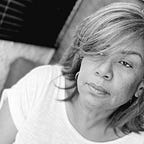Arrested Development:
Most children, though enjoying their childhood, can't wait to be ten years old. Being "double digits" is a milestone that, for a child, seems to take forever; they are often impatient to get there, although as an adult who experienced the same excitement, I have no idea why.
Ten-year-old black or brown boys, much like white boys, look forward to just playing their games, hanging out with their friends and just general living. They start to grow a bit, need shoes and clothes that fit and seem to eat whatever they get their hands on without putting on weight. It's a confusing but glorious time where they are still small enough to be children but big enough to notice that physically their bodies are rapidly changing.
The growth spurts they are going through is not only noticed by their loving parents but simultaneously by gangsters and drug dealers. Ten years old seems the last time these children can be children, especially if they live in a gang and drug-infested neighbourhood. Ten years old is also when these children experience the most pressure from their peers.
Gang members have, for the longest time, opened their eyes to the possibility of "grooming" these children into becoming "runners" for their drug distribution and or "lookouts" to warn the gangsters if anything in the neighbourhood is amiss.
Here, at the innocent age of ten, the black and brown boy living in a rough neighbourhood has their development arrested. These boys have chats with their friends and talk about their dreams, and if they are poor (which most of them are), those dreams are always about money. Suddenly, the boys question authority, such as their parents and "backchat." This is not because they are rude, but because they are trying to navigate new rules that come into play and at this age, they have heroes. The hero-worship is not some guy on tv but the one down the road, driving the fancy car, wearing expensive jewellery and flashing loads of cash around.
The grooming starts innocently enough, with them running errands to the local shop or a gang member or drug dealer greeting them. They feel "honoured" that they were "noticed," and most of them will happily comply. Next comes the "tips," the "keep the change" scenario. While these boys are getting a little bit of pocket money, if at all, on the street, they get way more for just going to the shop and then being told, "keep the change!"
This pattern will be repeated until the boys' trust is won. They will also be offered rides in the flashy cars they so admire, and whilst in those cars, they are exposed to drugs that are openly displayed and sold and or guns. All of which makes these boys think that this lifestyle is glamorous. Meanwhile, the parents are guiding these boys to focus on school and get to Matric, but unfortunately, the gangsters are telling them differently by saying they never completed school.
At this stage, if any of these boys have learning difficulties that go unnoticed, they will fall behind in their school work. Who needs school anyway? Right! At least that's what they're being told. If these boys have problems at home, the road to illegal activity is quicker.
How can parents or community members compete with the "glamour" side of gangsterism and drugs? It may not seem like it yet, but once these boys accept anything from a gangster or drug dealer, their lives changed from that moment on. Sadly, by the age of 12-years old, when these boys aren't yet teens, some of them have experienced the "power" that lies in illegal activities and have, sometimes sub-consciously, submitted to gangsterism and drugs.
It's not all "doom" and "gloom," though, because, often, the parents notice changes and step in before it reaches the "arrested" development stage.
Think about it; these boys normal development and milestones in life are "arrested" by the gang members or drug dealers, who probably went through similar experiences.
The fact that, as communities, we "lose" these children to gangsterism and drugs is awful. The good news is that some communities have realised the importance of having sports and recreation activities to keep the children occupied-and as a result, we see these young boys play chess, roller skate, learn to play a musical instrument and so on.
These initiatives should be encouraged and sponsored by all of us. If we can't afford to assist them financially, our involvement and presence also matter to these children.
After school, ten-year-old boys are supposed to be playing with their friends once their homework is done or being in safe spaces until they are old enough to understand the consequences of the decisions they make.
They should be living their life, not having their development arrested before they have a chance to fully mature.
